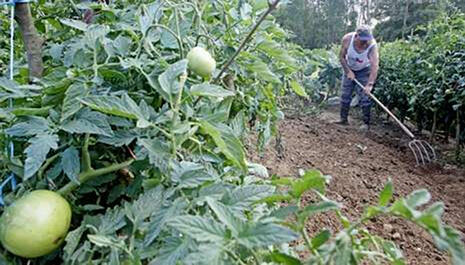Submitted by laborate on Tue, 02/10/2012 - 12:48 GMT.
From 22 to 26 October, 2012 an international seminar on
Local Food Systems, organized by Land Laboratory and the
Van Hall Larenstein University
(Netherlands) will be held in Lugo.

The seminar is made of two parts. In the first one the theoretical
and conceptual concepts about local food systems will be
taught. The second one will be a workshop with field visits
and interviews with local agents.
The theoretical part will taught by professor Alfonso Morales,
from the University of Wisconsin-Madison
(USA). During the first two days professor Morales will
introduce the concepts of food systems and urban agriculture,
and explain how food systems can contribute to sustainability.
After that, initiatives and planning tools that are being
developed within this field will be exposed. And finally,
a comparative analysis of food systems in USA and Europe
will be done. The intervention of professor Morales will
end with a debate with the audience about local food systems
in cities and their respective areas of influence.
The second part consists on a workshop and field visits
made by the students, with the aim of developing a plan
to encourage local production and marketing of food in the
city of Lugo. This plan will be presented on Saturday 27
at a public event. The participation of students of several
nationalities and academic background in this workshop will
contribute to analyze local food systems in the area of
Lugo from different perspectives, as well as presenting
new ideas to promote local food systems in the whole region.
A remarkable feature of the city of Lugo,
like almost all cities of Galicia, is that presents many
advantages for the implementation of such initiatives, given
the strong link the city to rural areas. In fact, there
are still many places in the city that retain vestiges of
its rural and agricultural character, and that could be
recovered to promote the creation of green areas through
urban agriculture. In fact, there are already existing urban
agriculture initiatives that are very successful, like
the orchards by the river Rato.
These actions can serve as a basis for more ambitious programs
that help to create greener and more sustainable cities.